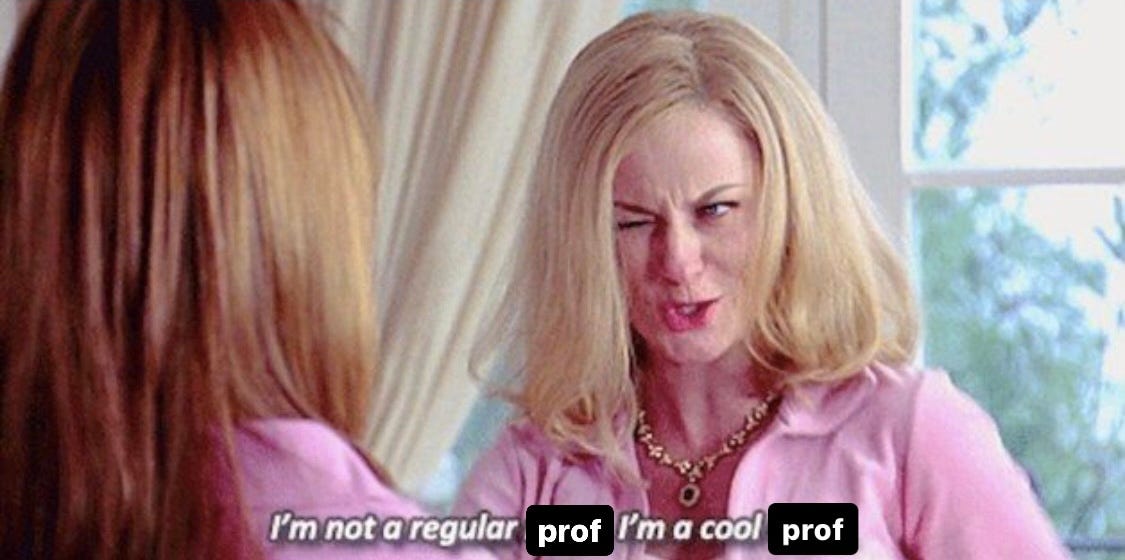"DEI" Shouldn't Be Complicated, But It Is
On why most of your college professors sucked at teaching.
Happy Halloween, readers!! 👻 This week, I was featured in Inside Higher Education, a major news publication focusing on colleges and universities. Yay! The article was all about my zine syllabus idea that I started in Fall 2021 (you can read about all the iterations of this practice in my previous newsletter posts). I’ve had a few other instructors, at UMass and abroad, tell me that they have “syllabus envy” when looking at my craftsmanship, which makes me giddy with pride. While filling my syllabus with art and affirmations isn’t exactly changing the world, it does set the tone from day one of my course that I care about my students a lot.
In just one year at my Lecturer job here at UMass, I’ve already amassed a reputation as “the cool professor who cares about mental health”. This shows in the way students have been more than comfortable coming forward to me about their mental health struggles and the other things they’re dealing with in their personal lives, something that is much needed in higher education! I feel two ways about this. On one hand, I am immensely proud that I have established myself as a safe person to talk to; I think it speaks to the quality of my work and the time I’ve taken to immerse myself in the perspectives of diverse thinkers. It makes me incredibly happy that students come forward to me about their experiences with mental health, racism, sexism, homophobia, and more. Students have even come out to me as queer, which brings me a huge amount of joy as someone who was totally alone as the sole queer/trans person in chemical engineering that I knew back in 2017. We’ve come a long way in the STEM world, and though we still have far to go, I’m proud to be contributing to a brighter future for all students.
At the same time, I often don’t feel like I should be praised for what I feel is the bare minimum. All teachers should care about their students, and it’s often surprising to me just how little they do. Surprising, that is, but not shocking: the world of STEM majors, perhaps second only to the world of business majors, is still in a committed, shared-bank-account relationship with the white supremacist ideas of meritocracy, rigor, and professionalism. Relationships between engineering schools and capitalist enterprises, especially petrochemical industry and defense contractors, are still firmly in place. Of course we can’t embrace “DEI” at our core, because DEI runs antithetical to the values we’ve held for generations.
Still, even if those relationships between academia and industry magically vanished and more progressive pedagogies were more widely embraced, I worry that the toxic, adversarial relationship between students and professors would remain. From an insider’s perspective, I believe that the barriers to inclusive teaching practices are baked in the very structure of academia itself.
Keep reading with a 7-day free trial
Subscribe to That Anna Marie Newsletter to keep reading this post and get 7 days of free access to the full post archives.




